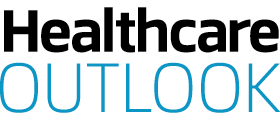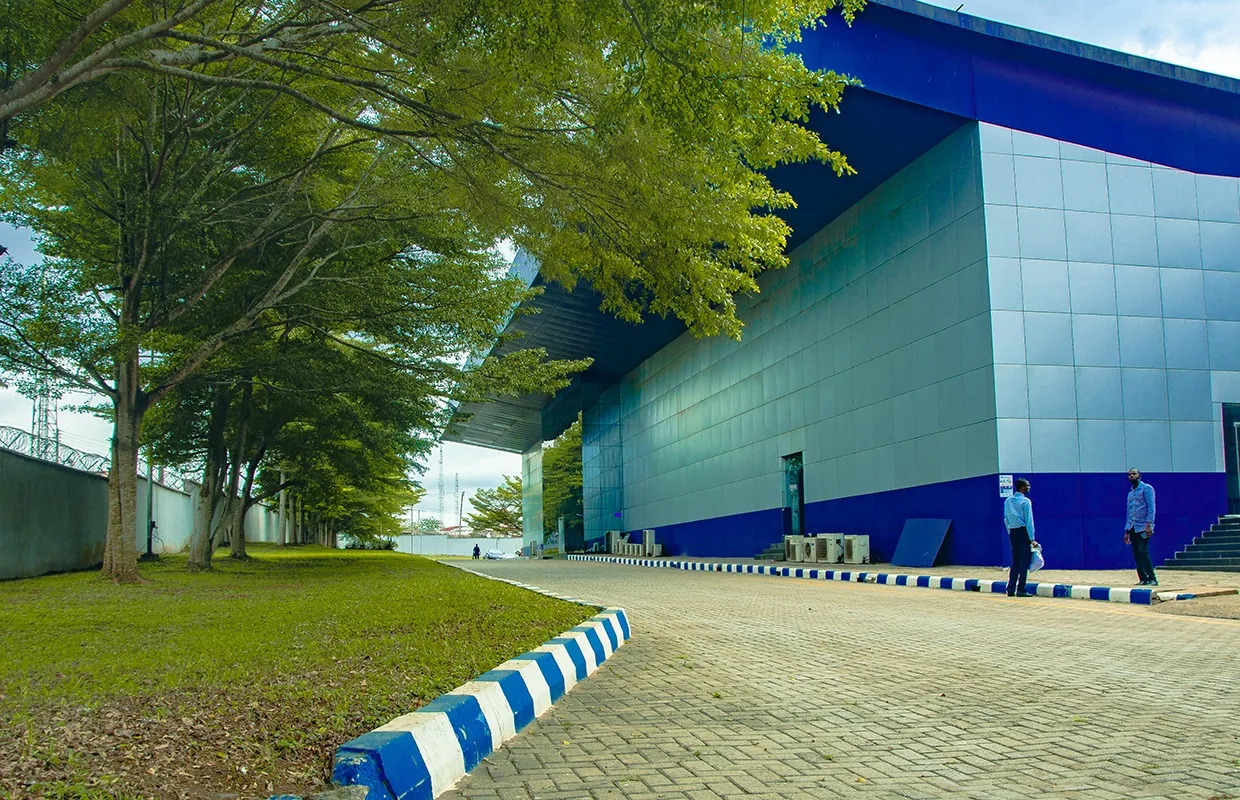More than just a pharmaceutical company, May & Baker Nigeria Plc is at the core of the nation’s healthcare advancement, driven by excellence, people, and purpose. Patrick Ajah, Managing Director and CEO, discusses further.
AN INDISPENSABLE PARTNER TO NIGERIAN HEALTHCARE
The multi-billion-dollar Nigerian pharmaceutical industry offers a wealth of opportunity as it continues to focus on strengthening its domestic production.
With this aim, however, comes a swathe of nationwide pressures, including currency fluctuations, rising input costs, supply chain disruptions, and the need to adapt to evolving regulatory frameworks, which can create an adverse operating environment.
Nevertheless, the sector is also incredibly promising, particularly with Nigeria’s large – and quickly growing – population, increasing health awareness, and the rise of both infectious and noncommunicable diseases.
This creates enormous opportunities for industry operators like May & Baker Nigeria Plc (MBN), who provides accessible, affordable, and high-quality healthcare solutions across the country with an extensive distribution network.
“What excites us most is the industry’s ongoing transformation – from greater emphasis on local manufacturing and self-sufficiency and expanding therapeutic areas to the growing role of consumer health and wellness,” opens Patrick Ajah, Managing Director and CEO.
“Companies that are innovative, agile, and committed to quality stand to benefit significantly.”
With this in mind, MBN views the current climate as a moment of opportunity to leverage its heritage, strengthen its local manufacturing, and continue expanding its portfolio to meet the diverse healthcare needs of Nigerians.
These targets are well within reach thanks to the company’s extensive network of distribution facilities that handles the transportation of products across a vast range of geographical regions, supported by key distributors and sales personnel.
MBN currently possesses three subsidiaries, namely Osworth Nigeria, Tydipacks Nigeria, and Servisure Nigeria, as well as one joint venture (JV) with the Federal Government of Nigeria – Biovaccines Nigeria (Biovaccines) – for the production and distribution of vaccines.
The subsidiaries’ primary functions are the marketing, distribution, and sale of human pharmaceuticals, medical devices, and consumer and personal care products, with a growing number of these manufactured locally.
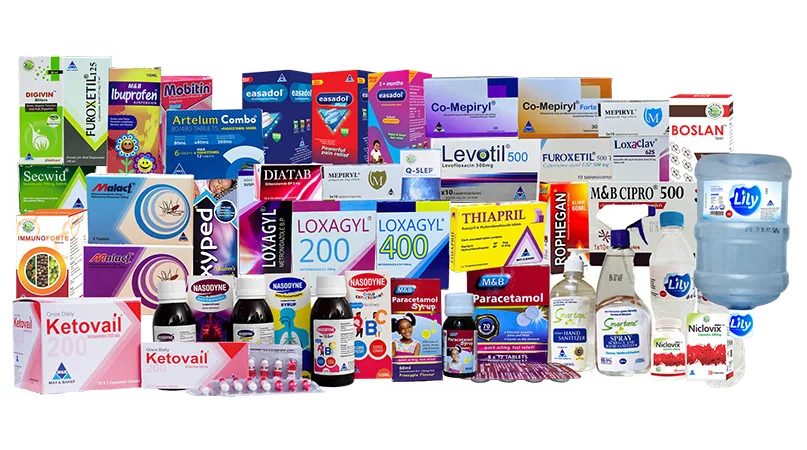
A HISTORY OF HEALTH IMPROVEMENTS
As Nigeria’s first pharmaceutical manufacturing company, MBN was registered on 4th September 1944 as the geographical offshoot of its parent company founded in England over a century earlier.
Established by three chemists in 1834, Grimwade, May & Pickett was a chemical manufacturing firm which transitioned into May & Baker UK Limited five years later following subsequent changes in ownership.
“May & Baker UK Limited later associated with major European conglomerates through a web of mergers and acquisitions over the years and had ownership relationships with companies like Rhône-Poulenc, Hoechst AG, Aventis, and Sanofi.
“Consequently, the company name changed at different times and today, only the Nigerian offshoot is known by the original name,” Ajah explains.
Having been established in Lagos, Nigeria as May & Baker (West Africa) Limited, the company relocated to its current site in neighbouring Ikeja in 1976 during the Nigerian Civil War, where it began local manufacturing of pharmaceuticals.
That same year, it was renamed May & Baker Nigeria Limited and, following its listing on the Nigerian Stock Exchange (NGX) in November 1994, became MBN.
Following years of overseas leadership sent by the parent company, MBN’s first Managing Director and CEO was appointed in 2005, granting it full autonomy.
The business thereafter began an aggressive expansion and diversification programme which culminated in the creation of its various subsidiaries.
This strategy also saw the construction of a multi-billion-naira food processing factory, creation of a production unit for antiretroviral drugs in Nigeria, and in 2011, the commissioning of a World Health Organisation (WHO)-standard pharmaceutical production facility in Ota, Ogun State.
Known as PharmaCentre, the facility was Good Manufacturing Practice (GMP)-certified by the WHO in 2014 and is currently undergoing recertification, whilst specific products from the plant are being presented to the WHO for pre-qualification.
With such an extensive history, MBN today embodies a legacy of trust, quality, resilience, and innovation built over eight decades.
“Our journey has been defined by an unwavering commitment to improving lives, supporting national health priorities, and upholding the highest standards of ethical and responsible corporate citizenship,” Ajah reflects.
SHAPING THE FUTURE OF HEALTHCARE
MBN is differentiated from the competition not just by its heritage and legacy of quality, but also the way it consistently evolves to remain relevant in an increasingly dynamic healthcare landscape, granting it a unique bond with healthcare professionals, institutions, and consumers.
On top of this, the company boasts a balanced and diversified portfolio, unlike other healthcare providers who lean heavily towards either prescription medicines or consumer health. For instance, the business offers major anti-infective, cardiometabolic, and analgesics drug brands such as M & B Paracetamol.
“Few companies in Nigeria can point to a brand like M & B Paracetamol – a household name synonymous with trust. Our strategy is to replicate this success across new launches such as MULTAMIN®-PLUS, Maysedyl, and Diamet SR,” Ajah states proudly.
Elsewhere, MBN’s PharmaCentre means it is positioned as a reliable local manufacturer.
This allows companies to reduce their dependence on imports and ensures consistent supply of quality, affordable medicines – advantages which resonate strongly in a market where access and affordability are critical.
MBN is further distinguished by its consistent aim to innovate with purpose, most recently demonstrated by its expansion into cardiometabolic care and wellness, reflecting the company’s ability to anticipate emerging health trends in Nigeria and influence in shaping the future of healthcare.
“What sets MBN apart is its blend of heritage, legacy of quality products and trusted brands, local manufacturing, and forward-looking innovation, all underpinned by a deep commitment to improving healthcare access and outcomes in Nigeria,” Ajah surmises.
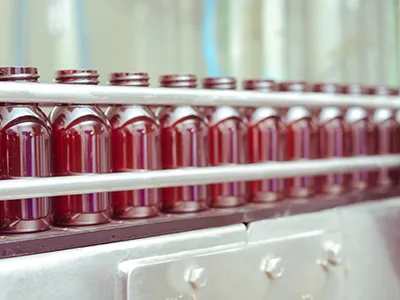
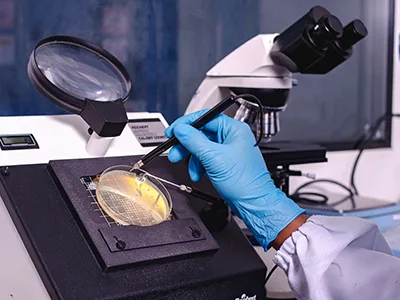
AN EVER-EVOLVING PORTFOLIO
Last year, MBN embarked on a strategic portfolio expansion drive with the launch of seven new products across critical therapeutic segments, deepening its commitment to meeting evolving healthcare needs and strengthening its market position.
“We see ourselves as more than a business – we are partners in national health. Our portfolio expansion aligns with the most pressing health challenges facing Nigerians, from infectious diseases to lifestyle-related conditions,” Ajah urges.
The company’s new products span a range of therapeutic segments – including cardiometabolic treatment with the launch of Diamet SR, Xitheram, and M & B Amlodipine – each addressing the growing burden of diabetes and hypertension, which are amongst the fastest-rising noncommunicable diseases in the country.
“By expanding into cardiometabolic care, we are now more present in the chronic disease management space, positioning MBN as a partner in both communicable and noncommunicable disease care,” Ajah informs us.
The recent roll-out of Loxaclav and M & B Azithromycin, meanwhile, reinforces MBN’s strong heritage in anti-infectives and relevance in the highly utilised antibiotics segment, sustaining demand from prescribers and pharmacists.
Launching a treatment for the common cough and cold, Maysedyl cough syrup is a consumer-friendly product that broadens the company’s over-the-counter (OTC) portfolio in this highly competitive category and complements the long-standing success of M & B Paracetamol, thus attracting a wider consumer base.
Finally, MBN’s multivitamin and amino acid, MULTAMIN®-PLUS, is a wellness-orientated multivitamin syrup introduced to strengthen the company’s consumer health portfolio.
“Each product is strategically positioned to build on our legacy of trust in quality and affordability, helping to create incremental demand and improve our share of voices in pharmacies, hospitals, and retail outlets nationwide,” Ajar highlights.
Additionally, by spreading its offerings across both the prescription and OTC segments, the company reduces its overdependence on a single element whilst building resilience for sustained growth.
“In summary, the seven new products launched in 2024 have significantly boosted our ability to penetrate new therapeutic areas, capture unmet demand, and strengthen MBN’s role as a diversified healthcare provider in Nigeria.”

MEETING CONSUMERS’ HEALTHCARE NEEDS
MBN’s most recent product launch last year, MULTAMIN®-PLUS represents a strategic step in broadening the company’s consumer portfolio beyond analgesics into the fast-growing health and wellness segment, marking a significant evolution from its flagship brand, M & B Paracetamol.
“Whilst M & B Paracetamol remains a market leader in the OTC segment, we recognised the need to diversify and build other equally strong brands that can sustain long-term and reduce our overdependence on a single product,” Ajah recalls.
Indeed, MULTAMIN®-PLUS complements M & B Paracetamol by targeting a different but related consumer need – enabling not just relief from pain and fever but also daily wellness, immunity, and vitality. Thus, the company is now positioned as a more holistic provider of everyday health solutions.
“Early performance of MULTAMIN®-PLUS has been encouraging, helping to open new revenue streams in a competitive but growing multivitamin market. This reduces risk concentration and creates opportunities for incremental growth,” he comments.
Just as M & B Paracetamol has become a trusted household name in Nigeria, MULTAMIN®-PLUS lays the foundation for building another strong, recognisable brand within the MBN portfolio, one which is aligned with its long-term strategy to replicate such successes across other categories.
“In summary, MULTAMIN®-PLUS has strengthened our consumer health portfolio by enhancing category presence, balancing our brand mix, and positioning MBN to capture future opportunities in the health and wellness space.”

“Our vision is to ensure every Nigerian, regardless of their geographical location or income level, has access to safe, effective, and affordable vaccines. This aligns perfectly with MBN’s mission and commitment to advancing regional healthcare through innovation and collaboration”
Patrick Ajah, Managing Director and CEO, May & Baker Nigeria Plc
SECURING SELF-SUFFICIENCY
Set up in 2005, MBN’s Biovaccines JV represents a landmark step in the self-sufficiency of local vaccine production and advancing regional public health security.
As a public-private partnership, Biovaccines is designed to reduce dependence on imports and ensure timely access to life-saving vaccines for Nigerians and the broader West African region.
“Once fully operational, the Biovaccines plant will not only enhance national immunisation coverage but also contribute to disease prevention, epidemic preparedness, and healthcare equity across underserved communities,” Ajah tells us.
Beyond its public health benefits, the JV will foster technology transfer, local capacity building, and job creation, positioning the nation as a strategic hub for vaccine production in sub-Saharan Africa.
“Our vision is to ensure every Nigerian, regardless of their geographical location or income level, has access to safe, effective, and affordable vaccines. This aligns perfectly with MBN’s mission and commitment to advancing regional healthcare through innovation and collaboration.”
Reaching this target is also made possible by long-term, essential strategic partnerships with key material suppliers, which underpin everything from operational efficiency to regulatory compliance and, most importantly, patient safety.
“In the pharmaceuticals industry, a company’s value chain is only as robust as the partners it depends on. When these relationships are built on strategy, transparency, and mutual resilience, they become catalysts for innovation, risk mitigation, and faster delivery of life-saving therapies,” Ajah affirms.
“In essence, philanthropy remains at the core of who we are, whilst our CSR practices continue to reflect our belief that corporate success and social responsibility are inseparable”
Patrick Ajah, Managing Director and CEO, May & Baker Nigeria Plc
IMPROVING THE QUALITY OF LIFE
MBN’s deeply rooted mission – to improve the quality of life, throughout life, for all lives – reflects the company’s continual commitment to corporate social responsibility (CSR), emphasised by its many philanthropic initiatives that have evolved from charitable acts into a structured and sustainable CSR framework.
Aligned with the UN’s Sustainable Development Goals (SDGs), the company’s CSR interventions span key areas such as healthcare, education, community development, and environmental sustainability.
In the realm of healthcare, MBN actively supports medical outreach programmes supplied by non-governmental organisations (NGOs), vaccination drives, and disease prevention campaigns, particularly in underserved communities.
“We also collaborate with hospitals and NGOs to enhance access to essential medicines and promote public health awareness,” Ajah adds.
The company’s education initiatives, meanwhile, involve setting up school sick bays, supporting science laboratories, and donating learning materials to schools –investments that reflect its commitment to nurturing future generations.
Beyond this, MBN’s community empowerment efforts include clean environment programmes and small-scale infrastructure projects that directly improve local living conditions.
These initiatives have matured into a well-defined CSR strategy guided by sustainability, partnership, and measurable impact.
“Our approach goes beyond giving back; it’s about creating shared value, ensuring our growth as a business translates into positive and lasting benefits for society.
“In essence, philanthropy remains at the core of who we are, whilst our CSR practices continue to reflect our belief that corporate success and social responsibility are inseparable,” Ajah prides.
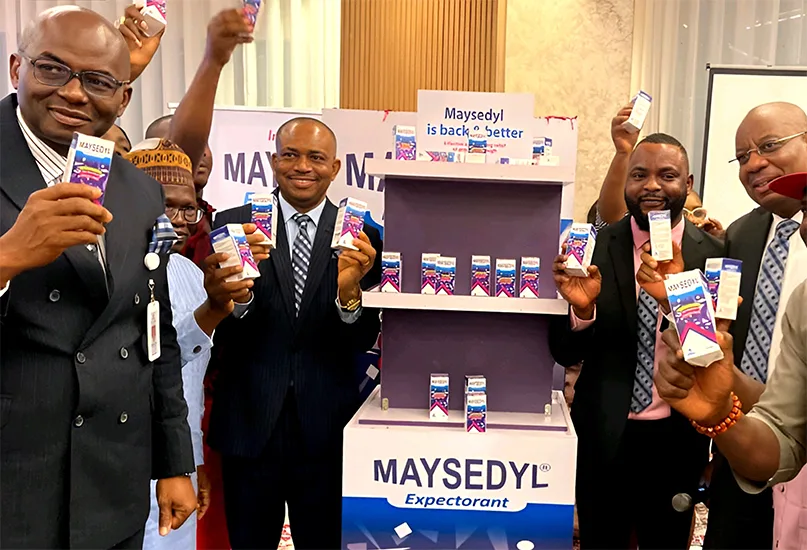
BUILDING A HEALTHIER FUTURE
Going into 2026, MBN remains focused on sustainable growth, innovation, and operational excellence, whilst also strengthening its local manufacturing capability with the ultra-modern PharmaCentre.
Additionally, the company intends to expand its herbal manufacturing operations to produce a broader portfolio of herbal products made from locally sourced ingredients, expanding on established brands such as Roveda – a formulation derived from bitter leaf.
MBN is also pushing to advance the impacts of its Biovaccines JV, explore new therapeutic areas, and invest in digital transformation and supply chain optimisation to improve efficiency across its operations.
Therefore, the company’s priorities ultimately remain on responsible and sustainable growth, building capacity, driving innovation, and delivering long-term value to its stakeholders whilst staying true to its mission.
“As we look to the future, our focus remains on building a healthier and more self-reliant Nigeria through sustained investment in local manufacturing, research, and strategic partnerships that deliver lasting impact,” Ajah reflectively concludes.
